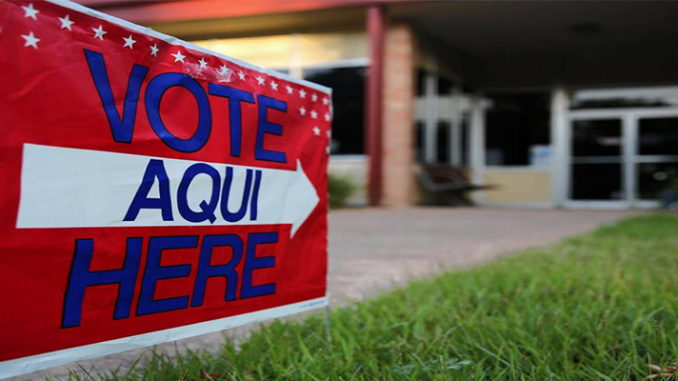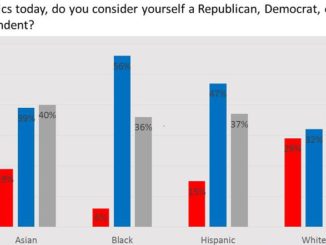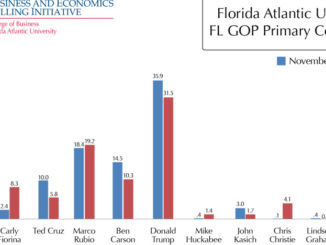
by Alex Gonzalez
There is a new found love for the Hispanic surname in South Texas, mostly by Republicans. While the Party wrestles on how to woo Latino voters and tame the Tea Party rhetoric regarding Immigration, a new trend in South Texas shows that voters are opting for a Hispanic surname Candidate during election. This is putting both parties on alert. In the 2014 Primaries, “more than two dozen counties voted for the Candidate with a Hispanic surname in record numbers, despite that these candidates were unfunded.” The Hispanic surname candidates even defeated the Anglo candidate even if they were democrat, as in the case with Davis.
Ethnic “cues” to voters is not unique to Texas. There is abundance of data showing how Irish and Italians and Jewish voters tended to vote for “one of their own”–same ethic surname–especially when voters don’t know much about the candidates. So this is not a Hispanic pattern, it as American Plural Democracy where many groups compete for political power.
In the 2014 Texas primary, 8,800 votes from Cameron, Webb and Hidalgo counties voted for an unfunded Hispanic candidate running against Wendy Davis in the Democrat ticket. And while “Davis won the South Texas counties by a 4-to-1 margin, she didn’t do as well as she needed to or had hoped she would. Indeed, she lost in such voter-rich counties as Hidalgo, a disconcerting sign for Davis supporters who are hoping Hispanics can help carry her to a victory.”
But the loss of Wendi Davis, to an unfunded candidate with a Hispanic surname in those counties, is not unique to Democrats. In Republican races, those counties also showed a strong sign that voters opted for Hispanic surname candidate, despite the fact that these candidates were unfunded and were running for public office for the first time.
This is POLITICO’s data results from the Primary. (just hover over the county and click on it.) The results show that the counties where Wendy Davis lost to Madrigal–Cameron, Webb and Hidalgo—and where Madrigal won in 6 other counties in the southwestern part of the state and where counties have fewer voters.
But this trend was also visible in the race for the U.S. Senate where Linda Vega received thousands of votes even though she did not campaign in those counties. Thus, in those counties there was a strong Hispanic surname appeal over the Republican “Anglo” candidates, notwithstanding that fact that Vega did not spend any money or time campaigning in those counties. see tables above
In addition, this year, turnout in both parties was lower than in 2010. About 1.5 million Republicans voted four years but only 1.3 million voted this year. Moreover, voter registration in Texas has actually declined from 4 years ago when a total of “non-suspense” (voters who have not changed address) registered voters was above 13 million. It also shows that the efforts by Democrats to registered more voters have failed. This makes it more vital for both parties to rely on the same voters for a high turnout: if the Republicans want to maintain control, or if the Democrats hope to turn the state blue. As a result, lower turnout and lower voter registrations means that there will be more pressure on both parties to energize the same base. This is probably what Greg Abbott wants to do with Hispanics.
Greg Abbott knows that he must have a strong Latino turnout to show that the Republicans in Texas are making great strides in stopping the Democrats from whittling away at the precious 40% Latino vote that was won by Pres. W. Bush.
In the past, Republicans in the state like Gov. Perry, W. Bush, and former U.S. Senator Kay Hutchinson were able to garner about 40% of Latino vote in Texas. But in 2012, Republicans receive to only about 30%, when only 27% of Latinos voted for Mitt Romney and about 30-35% for Cruz.
So the 2014 general election in Texas will show where the Latino vote is leaning. Will it go lower than the 30% as it did with Romney, or will it go back to 40% W. Bush/Perry years? Perhaps Abbott wants to take the Latino vote back to W. Bush model, and maybe even higher. And this views are share by many in Rio Grande Valley as far as we can tell. For example, this is what Carlos Sanchez from The Monitor wrote about Abbott’s efforts to woo Latino voters:
Abbott seems to genuinely want South Texas’ support and, in particular, the support of Hispanic Valley voters. Once again, as he did when he formally announced his candidacy for governor, Abbott made the Valley his first campaign stop after Tuesday’s primary, visiting El Pato restaurant in Edinburg on Thursday. There, he declared that he wanted to beat the 1998 record set by then-Gov. George W. Bush, who earned between 40 and 49 percent of this state’s Hispanic vote on his way to re-election.”
Abbott knows that he has an uphill battle to woo 40% of the Latino vote will depend on his ability defuse the hot rhetoric that will come from to runoff for Lt. Govern between Dan Patrick and David Dewhurst.
Therefore, the primary result is a warning for Democrats who take Latinos for granted. In reality there are many social conservative Latinos who may oppose Davis’ view on abortion and there are many Latino Democrats that want Hispanic candidates running for top positions. But this Hispanic surname trend in South Texas is also a warning for Republicans–”if demographic is a destiny.” Republicans need to start working on preparing Hispanic Republican candidates to run for higher office, to be “Generals” not just Soldiers, to keep the 40% within reach. Additionally, if Republicans want to, in fact, woo the Hispanic vote and keep it from fleeing to the Democrats, they need to rely less on the “Anglo” senior voting base that continues to decline in voter registration.
Alex Gonzalez is a political Analyst and Political Director for Latinos Ready To Vote. Comments to [email protected] or @AlexGonzTXCA



